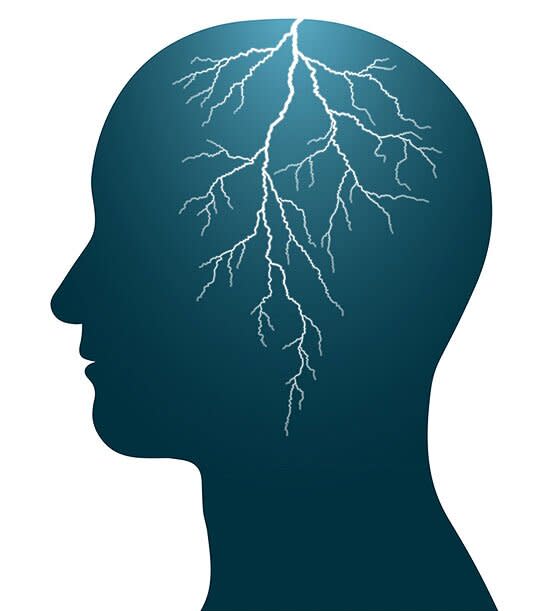What Causes Epilepsy?

Veer
Because "epilepsy" is actually an umbrella term for a group of neurological disorders, it can have many causes. "We always try to pinpoint a cause because it can impact our course of treatment," explains Orrin Devinsky, M.D., a neurologist and director of the NYU Comprehensive Epilepsy Center at NYU Langone Medical Center. "Of course there are times when we just won't know what triggers a child's seizures. But the good news is that about 75 percent of children with epilepsy do outgrow the condition." Neurologists can often determine the type and cause of epilepsy based on your child's electroencephalograph (EEG), which is a test that measures electrical activity in the brain.
One thing we know that doesn't cause epilepsy: vaccines. "Extensive research has failed to find a connection," Dr. Devinsky says. In rare cases, a child may experience a seizure in the days following an immunization, but it is almost always an isolated febrile seizure as a result of a fever and will not lead to epilepsy.
Common Known Causes of Epilepsy
Fever (though febrile seizures are usually isolated events)
Head injury (seizures may occur immediately or months later)
Metabolic disorder, such as low blood sugar
Meningitis or another infection in the brain or spinal cord
Lack of oxygen to the brain due to a difficult birth or other trauma
Hydrocephalus (excess water in the brain cavities)
Disorders of brain development
Much More Rare Causes of Epilepsy Include:
Brain tumors or cysts
Degenerative neurological disorders
Common Risk Factors
It's important to understand that even if your child experiences a potential cause of epilepsy (such as a moderate head injury), it's certainly not a given that he will develop a seizure disorder. Researchers are still trying to understand why some people have lower "seizure thresholds" and appear more susceptible to epilepsy than others do, but genetics, hormones, sleep deprivation, and many other variables appear to play a role. Here are some factors that may increase your child's risk for developing epilepsy:
Low birthweight
Experiencing a seizure in the first month of life
Being born with abnormal brain structures
Cerebral palsy
Family history of epilepsy or fever-related seizures
Febrile seizures that last longer than 30 minutes
Seizure Triggers
Even if doctors are unable to pinpoint the cause of your child's epilepsy, you can help reduce her risk for seizures by paying attention to lifestyle factors that seem to increase her risk for an episode. Common seizure triggers for children include:
Missed medication: If your child needs antiepileptic drugs, make sure she always takes the correct dose at the correct time and ask your doctor what to do if doses are missed.
Other medications: Some over-the-counter and prescription drugs can interfere with the efficacy of epilepsy meds, so make sure your doctor or pharmacist checks for any contraindications before starting your child on a new medication.
Lack of sleep: "This tends to be the most common trigger for seizures at all ages," says Phillip Pearl, M.D., director of Epilepsy and Clinical Neurophysiology at Boston Children's Hospital.
Illness: Anytime your kid is sick (with or without a fever), her seizures may spike.
Nutritional deficiencies: This can vary widely but if you suspect diet is playing a role in your child's seizures, ask your neurologist to refer you to a nutritionist who can help supervise a healthy antiepileptic diet.
Menstruation: If her seizures are not outgrown by puberty.
Copyright © 2014 Meredith Corporation.
All content on this Web site, including medical opinion and any other health-related information, is for informational purposes only and should not be considered to be a specific diagnosis or treatment plan for any individual situation. Use of this site and the information contained herein does not create a doctor-patient relationship. Always seek the direct advice of your own doctor in connection with any questions or issues you may have regarding your own health or the health of others.
